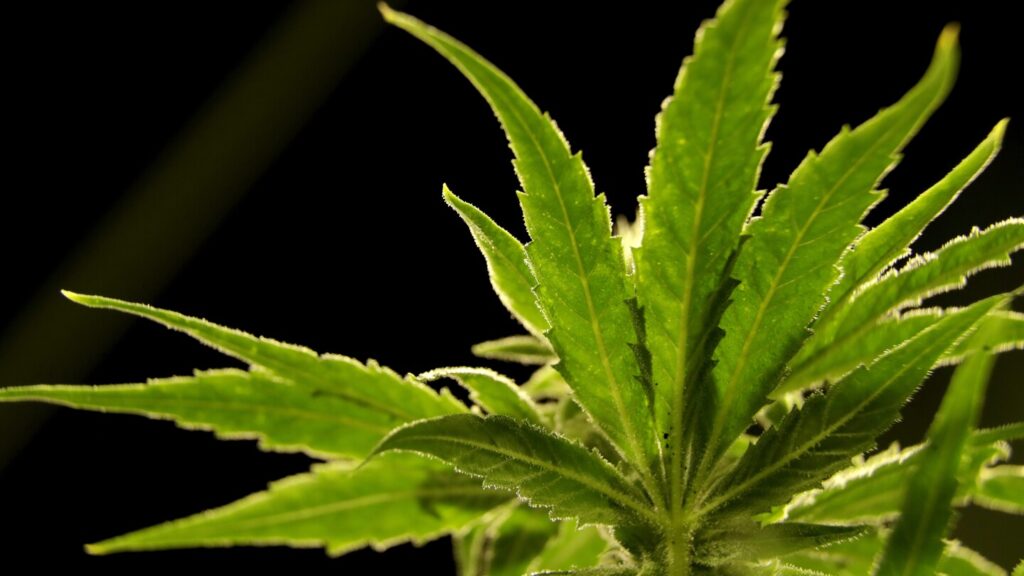WASHINGTON (AP) — US Drug Enforcement Administration Move to reclassification marijuana The move is a historic shift in American drug policy for generations and could have far-reaching ramifications across the country, The Associated Press has learned.
The proposal still requires review by the White House Office of Management and Budget, but medical uses of cannabis And it acknowledges that it has a lower potential for abuse than some of the nation's most dangerous drugs. However, it does not fully legalize marijuana for recreational purposes.
The agency's move, confirmed to The Associated Press on Tuesday by five people familiar with the matter who spoke on condition of anonymity to discuss the sensitive regulatory review, marks the agency's biggest policy change in more than 50 years. It has now cleared the last major regulatory hurdle. effect.
If approved by OMB, the DEA will seek public comment on its plan to remove marijuana from its current classification as a Schedule I drug, along with heroin and LSD. It moves pot to Schedule III, along with ketamine and some anabolic steroids. as recommended From the federal Department of Health and Human Services. After a public comment period and review by an administrative judge, the agency will ultimately issue a final rule.
The proposal is expected to be formally signed by Attorney General Merrick Garland, who ultimately oversees the DEA, said another person familiar with the process, who spoke on condition of anonymity to discuss internal deliberations. Garland's signature throws full responsibility at the Justice Department behind the move and appears to indicate its importance to the Biden administration.
This comes as President Joe Biden calls for a review of federal marijuana laws in October 2022. forgive thousands of Americans He was federally convicted of simple possession of drugs. He also called on state governors and local leaders to take similar steps to expunge marijuana convictions.
“Criminal records for marijuana use and possession impose unnecessary barriers to employment, housing, and educational opportunities,” Biden said in December. “Too many lives have been turned upside down because our approach to marijuana has failed. It's time we right these wrongs.”
The election-year announcement could help boost Biden's sagging support, especially among Democrats. young voters.
Biden and a growing number of lawmakers from both major political parties are calling for the Drug Enforcement Administration's decision as marijuana becomes increasingly decriminalized and accepted, especially by young people. A Gallup poll last fall found that 70% of adults supported legalization, the highest level ever recorded by the polling firm, compared to about 30% who supported legalization in 2000. It has more than doubled.
The DEA did not respond to repeated requests for comment.
Schedule III drugs remain controlled substances and are subject to rules and regulations, and those who traffic them without a permit can still be subject to federal criminal prosecution.
Some critics argue that the DEA should not change its marijuana policy, saying the schedule change is unnecessary and could lead to harmful side effects.
Former DEA Deputy Administrator Jack Riley said he was concerned about the proposed changes because he believes marijuana may still be a “gateway drug” that can lead to the use of other drugs. He said he was holding her.
“But it's a good thing in that it gives us clarity to use our resources to fight other major drugs,” Riley said, noting that fentanyl alone causes more than 100,000 deaths a year in the United States. It was pointed out that this was occurring.
At the other end of the spectrum, some argue that marijuana should be treated the same as alcohol.
Last week, 21 Democrats, led by New York's Senate Minority Leader Chuck Schumer, sent a letter to Drug Enforcement Administration Director Ann Milgram and Attorney General Merrick Garland to remove marijuana from the list of controlled substances and replace it with alcohol. He argued that it should be regulated.
“It is time for the DEA to act,” the lawmakers wrote. “The government now has an opportunity to fix racist marijuana policies that have failed for more than 50 years.”
Federal drug policy has lagged behind that of many states in recent years, with 38 states already legalizing medical marijuana and narcotics. 24 Legalize recreational use.
This has fueled the rapid growth of the marijuana industry, which is estimated to be worth nearly $30 billion. Easing federal regulations could reduce the tax burden on companies, which could be more than 70%, according to industry groups. It could also make research on marijuana easier, as it is very difficult to conduct approved clinical studies on Schedule I substances.
Federal prosecutions for simple possession have been fairly rare in recent years, so the immediate impact of the schedule changes on the nation's criminal justice system will likely be more modest.
But loosening regulations could have many unintended consequences for the drug war and beyond.
Critics note that as a Schedule III drug, marijuana will continue to be regulated by the DEA. That means the roughly 15,000 cannabis dispensaries in the U.S. have to register with the DEA and meet strict reporting requirements just like regular dispensaries, something they don't want to do and the DEA doesn't have the capacity to do. Not equipped.
Additionally, the United States has international treaty obligations, chief among them the 1961 Single Convention on Narcotic Drugs, which requires the criminalization of cannabis. In 2016, during the Obama administration, the Drug Enforcement Administration rejected a similar request to reschedule marijuana sales, citing the U.S.'s international obligations and a Washington federal appeals court finding.
___
Goodman reported from Miami and Mustian from New Orleans. Associated Press writer Colleen Long contributed.


